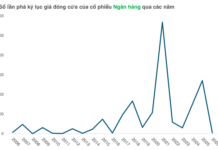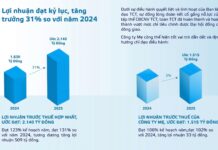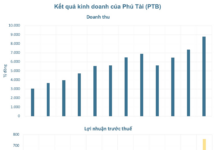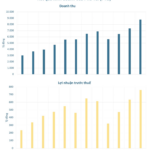Postponing the Application of New Regulations
The Vietnam Chamber of Commerce and Industry (VCCI) has recently provided feedback to the Ministry of Finance on the Draft Decree amending Decree 132/2020/ND-CP on tax management for enterprises with related-party transactions. VCCI proposed to postpone the implementation of the new regulations regarding the exclusion of lending transactions between banks and enterprises from the definition of “related-party transactions” when there is no controlling or capital contribution relationship.
VCCI appreciated the Ministry of Finance’s amendment to Article 5.2.d of Decree 132/2020/ND-CP, which exempts lending transactions between banks and enterprises from the definition of “related-party transactions” when there is no controlling or capital contribution relationship. This amendment helps enterprises avoid the restriction on interest expense deduction to 30% of earnings before interest, taxes, depreciation, and amortization (EBITDA) as per Article 16.3.a, allowing them to fully deduct interest expenses for tax calculation. This change addresses many difficulties and obstacles faced by enterprises and aligns with the reality of borrowing activities of many businesses and economic organizations.
 |
| Enterprises argued that a fixed limit on interest expenses would hinder large economic groups from mobilizing internal capital to implement projects with large capital scales. |
However, VCCI suggested that the effective date of this amendment, as specified in the draft decree for the 2024 corporate income tax period, is not suitable for the practical situation in Vietnam. In 2022-2023, due to macroeconomic fluctuations and rising interest rates in the credit market, many enterprises’ interest expenses exceeded 30% of EBITDA, even without transfer pricing issues as the loan interest rates were in line with the market average.
Citing recommendations from the Organization for Economic Cooperation and Development (OECD), VCCI argued that fixing a cap on interest expense deductions does not accurately reflect the changing interest rates over time. Instead, a flexible mechanism should be adopted to adjust the cap in situations where interest rates surge abnormally, impacting local businesses.
For Vietnam, maintaining the interest expense cap for the 2022 and 2023 tax periods would be unfair and inconsistent with the OECD’s recommendation for flexibility in response to abnormal market situations. Therefore, VCCI proposed that the drafting agency consider applying the amendment to Article 5.2.d of Decree 132/2020/ND-CP retrospectively for the 2022 and 2023 income tax periods. This would allow enterprises, whose reasonable loan expenses were previously disallowed, to reduce their tax liabilities in subsequent years.
According to VCCI, such retrospective application would not contradict the Law on Promulgation of Legal Documents as it does not increase the legal responsibilities of enterprises.
Avoiding Distortions in the Credit Market
Regarding the provisions in the draft decree that retain the 30% EBITDA cap on interest expenses as per Article 16.3.a of Decree 132/2020/ND-CP, VCCI suggested that these provisions are inappropriate and need to be reconsidered.
Specifically, if the 30% EBITDA cap on interest expenses is applied to all related-party transactions, including domestic related-party transactions where there is no tax rate differential, the interest expenses on inter-company loans will still be restricted.
This regulation is unreasonable because there is less incentive for transfer pricing between two domestic enterprises with no tax rate differential.
VCCI stated that there are currently no international commitments that require Vietnam to apply an equal cap on interest expenses for enterprises with domestic and international related-party transactions. The official interpretive report of the OECD, which aims to guide the application of double tax avoidance agreements (DTAAs), also suggests that the countries of the borrower can apply thin capitalization rules domestically without violating the non-discrimination principle in determining and deducting taxable profits. In other words, a country can choose to apply an interest expense cap only to international related-party transactions, excluding domestic related-party transactions, as long as it adheres to the arm’s length principle.
Based on the experiences of other countries, VCCI argued that the key focus of policies imposing caps on interest expenses is usually to counter transfer pricing in international related-party transactions, which carry a higher risk of transfer pricing. In Vietnam, the policy of limiting capital borrowing expenses in Article 16.3.a of Decree 132/2020/ND-CP primarily aims to address the issue of “thin capitalization” among enterprises. This limitation aims to prevent large enterprises from incurring excessive debt, ensuring compliance with safety ratios, and reducing the risk of illiquidity in the face of unexpected fluctuations.
However, according to VCCI, addressing “thin capitalization” and ensuring the financial security of banks and large enterprises should be achieved through regulations governing the credit market. The Law on Credit Institutions 2024, which is now in effect, includes provisions to address thin capitalization while promoting the healthy development of the credit market. For example, Article 136 of this Law reduces the concentration of credit granted by a bank to a single customer (or a group of related customers). Additionally, Article 153 establishes a monitoring mechanism to ensure that contracts in related-party transactions comply with the arm’s length principle.
In conclusion, VCCI suggested that a fixed cap on interest expenses at 30% of EBITDA would distort the credit market. For instance, if two parties borrow at the market average interest rate, comply with the arm’s length principle, and show no signs of fraud in interest rates for transfer pricing purposes, it is unreasonable to restrict their interest expenses to 30%.
In reality, high-interest expenses are a natural feature of investments in production and infrastructure sectors, which typically have higher financial leverage compared to other industries. Therefore, rigidly imposing an interest expense cap would inadvertently create barriers for domestic corporations and conglomerates in mobilizing internal capital to implement large-scale, long-term capital projects. Moreover, it is uncertain if this measure is necessary to improve thin capitalization, as the Law on Credit Institutions 2024 already includes provisions to control credit and make appropriate adjustments.
Based on the above analysis, VCCI proposed that the Ministry of Finance consider exempting domestic related-party transactions, where there is no tax rate differential, from the interest expense cap to ensure equality and facilitate the development of economic group models in production and infrastructure, which are crucial for the country’s industrialization process.
“Tightening the Reins: Bắc Giang’s Stern Approach to Curbing Tax Arrears and Safeguarding Fiscal Revenue”
The province of Bac Giang has seen impressive results in its tax revenue collection for the first seven months of the year, amassing nearly VND 9.7 trillion, a substantial 22.3% increase compared to the same period last year. This remarkable achievement can be attributed to the Bac Giang Tax Department’s proactive efforts in conducting inspections and audits to combat tax evasion and avoidance, coupled with their stringent management of tax debts, including the implementation of temporary exit bans for delinquent businesses.
Consider Reducing the Allocation to the Financial Reserve Fund and the Development Investment Fund
The VCCI has suggested a reduction in the allocation to the Financial Reserve Fund and the Development Investment Fund in its feedback on the Draft Decree on financial regulations for credit institutions.







































